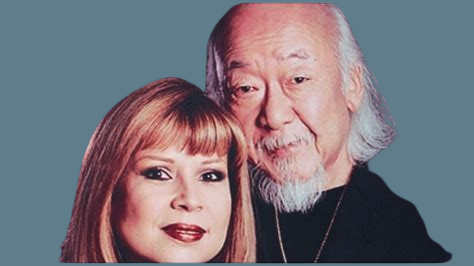Kathleen Yamachi is best known as the first wife of Noriyuki “Pat” Morita, the actor most famous for his iconic role as Mr. Miyagi in The Karate Kid. Though she has lived mainly out of the spotlight, her story is deeply intertwined with early parts of Morita’s life and provides a portrait of strength, support, and quiet influence. This article examines what is known for sure about Kathleen Yamachi, including her background, her marriage to Morita, her legacy, and why her story continues to resonate.
Early Life and Background
There is very little publicly available information about Kathleen Yamachi’s early life, including her family, upbringing, or exact date of birth. What is known is that she was part of the Japanese-American community and grew up in the United States during a period marked by historic challenges, including World War II and its aftermath for Japanese Americans. Her formative years likely shaped her sense of resilience and privacy—qualities she has maintained throughout her life.
Marriage to Pat Morita
Kathleen Yamachi married Pat Morita on 13 June 1953. At that time, Morita was 21 years old, while Kathleen was approximately 27 years old. Their marriage began when Morita was still working in his family’s restaurant in Sacramento, and before he began to gain traction in his performance and acting career.
Family Life and Raising Erin
During their marriage, Kathleen and Pat had one daughter, Erin Morita, born in 1954. As Morita pursued opportunities—working various jobs and steadily transitioning into performance—Kathleen played a central role in managing the household and raising their child. Although public references to her exact contributions are few, it is evident that she balanced motherhood in conditions that were modest and challenging.
Supporting Pat Morita’s Early Struggles
Before Pat Morita achieved fame, he faced numerous personal and professional challenges, including limited roles for Asian American actors, financial instability, and working outside his ideal vocation. Accounts of Pat Morita’s life credit Kathleen Yamachi as being a stabilizing and encouraging presence during those years. Her role appears to have been one of emotional support, maintaining domestic stability, and allowing Morita space to explore his comedic and acting ambitions.
Divorce and Life After Marriage
Kathleen Yamachi and Pat Morita divorced in 1967 after 14 years of marriage. Though the full personal reasons for their separation are private, the divorce occurred before Morita’s rise to international stardom through The Karate Kid. After the divorce, Kathleen did not remarry publicly (based on available records) and chose to live a more private life away from Hollywood’s public eye.
Public Profile and Privacy
Unlike many individuals connected to famous personalities, Kathleen Yamachi never sought public attention. She rarely, if ever, gave interviews or made public appearances tied to Morita’s work or name. Her low profile means that much about her life—her education, her personal interests, any professional work—remains undocumented in reliable sources. What is clear is that she values privacy and seems to have chosen a life that doesn’t depend on her ex-husband’s fame.
Legacy and Influence
While she is not famous for being in front of the camera or for public achievements, Kathleen Yamachi’s legacy lives in more subtle but real ways. Her support during challenging early years likely made a meaningful difference in Pat Morita’s ability to keep pursuing his dreams. Her role as mother to Erin also meant she laid a foundation of love, care, and normalcy during tumultuous times. Her story is a reminder that not all contributions to success are public and that sometimes quiet strength is among the most powerful.
Why Kathleen Yamachi’s Story Matters
Kathleen Yamachi’s experience touches on larger themes that many people can relate to: being the partner of someone with dreams, facing societal and economic pressures, and choosing dignity over glamour. Her story also highlights aspects of the Japanese-American experience in mid-20th-century America, including the reality of limited opportunities, social prejudice, and the determination to build a stable family and home despite such barriers.
What’s Still Unclear
Because Kathleen very deliberately kept her life private, much remains unknown. Her date and place of birth are not formally verified in publicly accessible records. Details about her life after the divorce—such as whether she held a particular profession, her relationships, or personal endeavors—are undetermined in reliable sources. Similarly, much of what people speculate comes from secondary or fan-interest writings rather than primary documents.
Lessons From Her Journey
From the known parts of Kathleen Yamachi’s life, there are important lessons: the value of being a supportive partner even when personal sacrifices are involved; the strength in choosing a private life when public exposure feels unnecessary; the impact of motherhood beyond fame; and the idea that one’s influence on someone else’s story can be profound even when not widely recognized. Her story shows that legacy is not only in what the world sees, but also in what is given quietly.
Conclusion
Kathleen Yamachi may not be a household name in the way actors or public figures are. Still, her presence in the life of Pat Morita and in the early conditions that shaped his journey is undeniably part of the story. Her choices—of loyalty, nurture, and privacy—help to sketch a profile of someone who believed in her partner, protected her child, and held herself with dignity away from the limelight. In remembering Kathleen Yamachi, we recognize the many people whose love and support make success stories possible.




